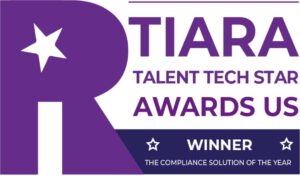For years, California employers have been struggling to understand whether or not they were permitted to use or require employees to sign mandatory arbitration agreements.
Background
The prohibition in California dates back to October 2019, when Governor Newsom signed Assembly Bill 51 (AB 51) into law. As written, California law was scheduled to begin its prohibition of mandatory workplace arbitration agreements to all contracts entered into or modified after January 1, 2020. However, California business organizations quickly responded, filed suit, and obtained a temporary restraining order which prevented enforcement of the law on the date it was set to become effective.
Fast forward to September 2021 – in a 2-1 decision – a panel of the federal Ninth Circuit disagreed with the District Court that granted the injunction in favor of the business organizations and upheld many of AB 51’s provisions in Chamber of Commerce of the US v. Bonta. But just one month after this decision came down, the Chamber of Commerce of the United States filed a petition for rehearing of the matter, this time before the full panel of the Ninth Circuit Court of Appeal. From here, the Ninth Circuit may grant or deny the petition, and we may even see a future petition for certiorari to the Supreme Court of the United States to determine AB 51’s fate.
What Does This Mean For My Business?
Unfortunately, this means more uncertainty for California businesses – at least for now.
As it stands, the timely petition for rehearing has the effect of postponing AB 51 from becoming effective. This means that employers can continue to require employees to sign arbitration agreements as a condition of employment. However, many employers are instead focusing their efforts elsewhere by using this time to transition to voluntary arbitration agreements with their employees, a type of arbitration agreement that is not prohibited by the text of AB 51.
Whether or not the Ninth Circuit will ultimately grant the Chamber of Commerce’s petition for rehearing is not yet known. But what California employers can be sure of is that California will continue with its regular adjustment of employment laws, requiring employers to ‘stay on their toes’ to keep up with the seemingly constant, nuanced changes.
For many organizations, this means more pressure being placed on human resources professionals to research and apply these changes to workplace policies and practices in order to remain compliant and avoid lawsuits. And the risk is real: in 2020 alone, California’s Department of Fair Employment and Housing (DFEH) received 24,000 complaints, 57% of which requested “Right-to-Sue” in employment cases. Nationally, more than 1 in 10 employers are sued every year. That same year (2020), U.S.-based litigation costs for labor and employment litigation reached $5.5 billion.
Tired of Never-Ending Research?
VirgilHR keeps up with the ever-changing legal landscape to help HR professionals remain compliant with current labor and employment laws through integration with your human resources information system (HRIS). With its technology, VirgilHR analyzes and applies relevant employee data to thousands of potential labor and employment law situations. Through this analysis, VirgilHR provides its users with prescriptive guidance applicable to each employee’s unique situation.
View our one-minute demo video below to learn more and request a demo today.






